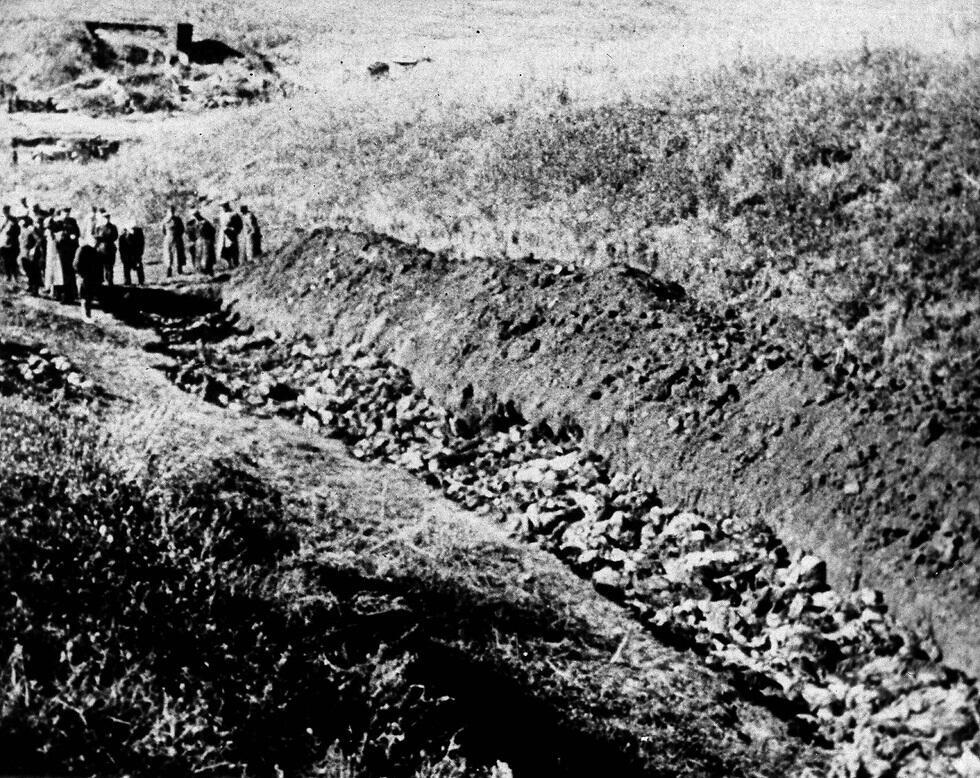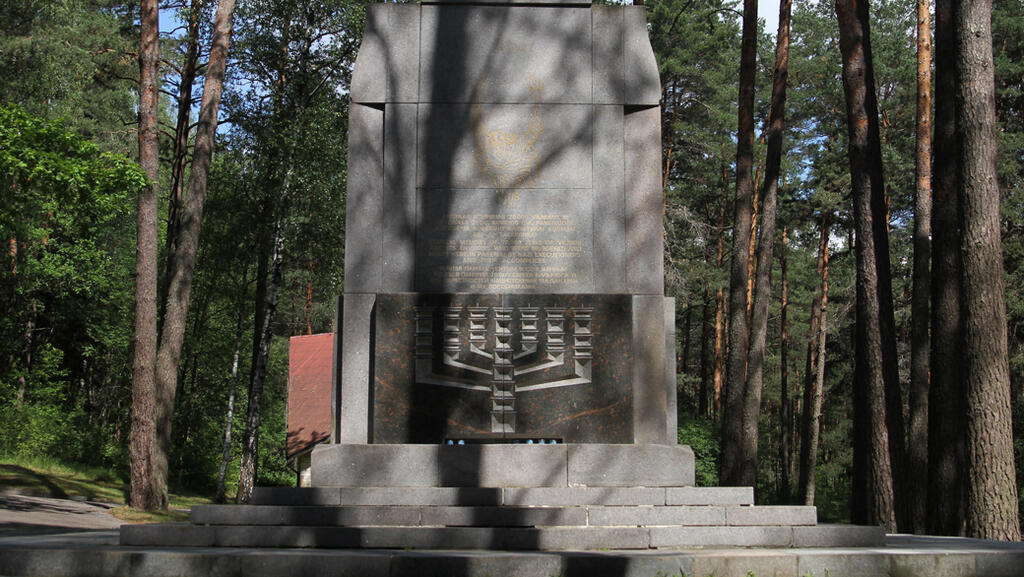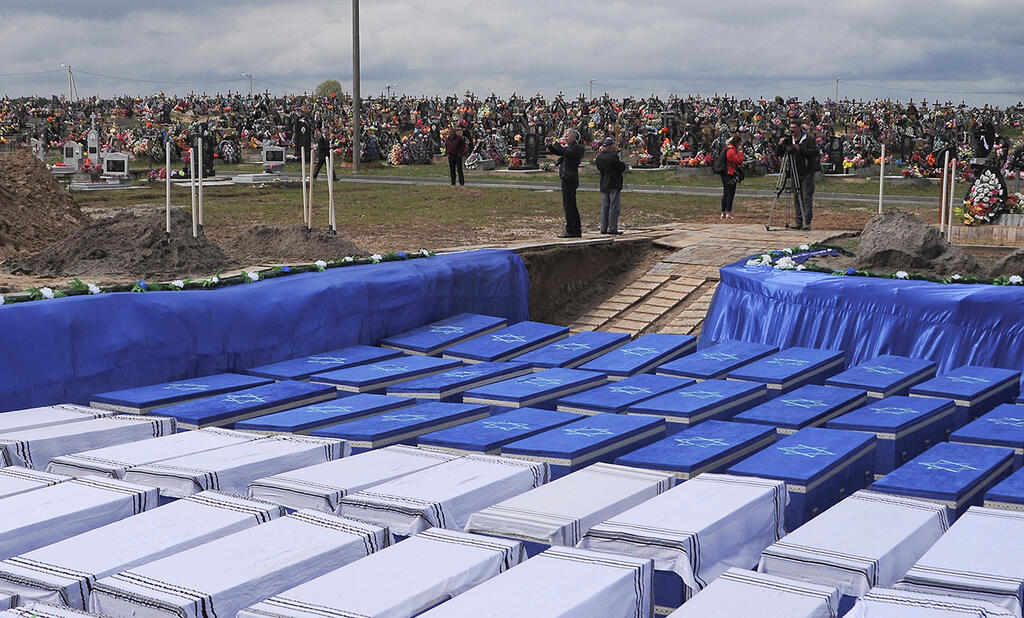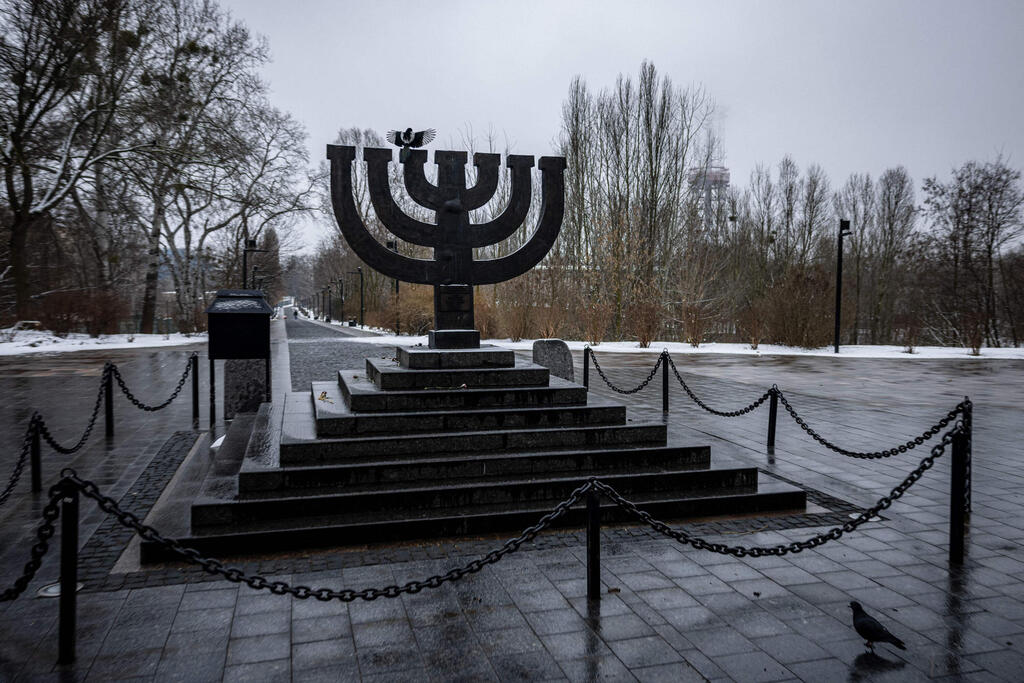Last week, Israel announced the names of those who were to light a torch during the annual Holocaust Remembrance Day ceremony at Yad Vashem. While all those who'd been chosen obviously deserve it, it raises a question: How come not a single torch bearer comes from the former Soviet Union?
But may I ask, why differentiate between the survivors in the first place? What difference does it make where the torch lighters come from?
Documentary film director Boris Maftsir once gave an anecdotal answer to that question. One day, he visited the Ghetto Fighters' House Museum and looked at a map of Europe that was spread over a wall. And on that map, many points were marked with a glowing light, which indicated where the mass murder of Jews was committed.
The central part of the continent was loaded with such glowing dots, but in the eastern part, where the former Soviet Union was located, only a dozen of "famous" sites were marked, including Babi Yar in Ukraine and Ponary in Lithuania. How is that possible?
Maftsir asked himself and the museum's administration that same question. The museum, however, is not at fault. Due to the Iron curtain of the Cold War, the Soviet Union avoided sharing information about massacres, German or otherwise, that took place on its territory.
Even the memorial in Babi Yar was only established after the collapse of the Soviet Union in 1991, about 50 years after the massacres.
But more than three decades have passed since, and yet the subject of atrocities suffered by the Soviet Union Jews is being minimized in Israel: in the school curriculum, in memorial ceremonies, monuments and research.
Some 2.7 million Jews were murdered in the Soviet Union during World War II, most of them died on the Belarusian and Ukrainian soil, and they equal almost half of the total number of Holocaust victims.
True, many industrial elements of the Nazi genocide that were prevalent in central and western Europe - such as trains, concentration and extermination camps, gas chambers, and crematoriums - were absent in the east. And most of the Soviet Union Jews were killed in a mundane way - with bullets and guns. But why does it even matter? There is no difference between the killing methods, they all equate to systematic genocide.
Yet, it seems Israel believes there is a difference after all. A representative statistic shows that since 1995, at least 48 Jews from Poland were chosen as torch lighters during state ceremonies - compared to only six from Ukraine, while Russian survivors never even made the list.
Also, what about the 41 ghettos that were set up in Russia? They don't belong in this story? Is Zmievskaya Balka, a site where 27,000 Jews were massacred, also outside the Holocaust map?
My feelings about this were best expressed by my friend's daughter. In response to the question of why she doesn't feel a connection to the Holocaust Remembrance Day, she replied: "We have no one in the family from Auschwitz, our relatives were all killed in some village. Our story is a story of second-rate Holocaust survivors". Her answer hits close to home for many survivors from the Soviet Union and their descendants.
In recent years, things have started to change. Not only has the map at the Ghetto Fighters' House Museum been updated, but the museum has also begun conducting extensive research on the subject.
In addition, Maftsir has created an important documentary series, called "Searching For The Unknown Holocaust," while Yad Vashem is paying more attention to the experiences of the Soviet Union Jews during the war.
But has the map been updated in the historical consciousness of the Israeli public? Looks like it's gonna take a long time.
The selection of torch lighters is proof of that. One could argue that this year the theme of the Holocaust Remembrance Day centered around the subject of concentration camps, which automatically pushes aside the Jews of Russia, Ukraine, and Belarus.
5 View gallery
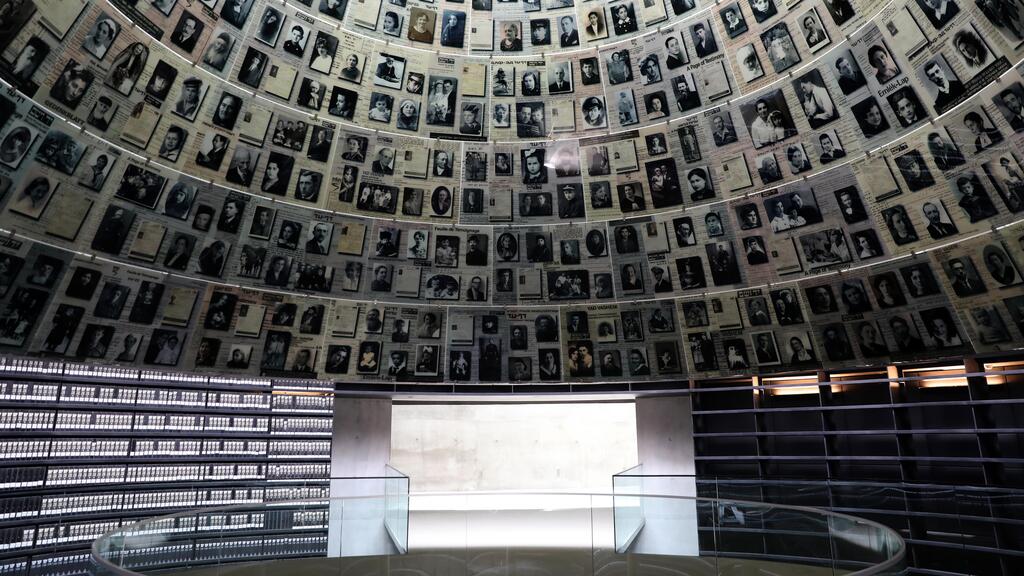

An interior view of a the empty Hall of Names at the deserted Yad Vashem Holocaust Memorial Museum in Jerusalem
(Photo: AFP)
Last year, however, the theme revolved around the German invasion of the Soviet Union, to mark the 80th anniversary of Operation Barbarossa, and still the torch lighters, with the exception of one Ukrainian representative, were survivors from Poland, the Czech Republic, Greece, and the Netherlands.
There are very few years left in which we can pay survivors of the "second-rate" Holocaust the respect they deserve. But, as long as they walk among us, it is worth making it clear that we learned from past mistakes and we recognize those who for many years have been forgotten by the modern narrative of the Nazi genocide.
Simon Shechter is a director, screenwriter, creator of The Museum of the Jewish Soldier in WW2, founder of Maalot, The Heritage Center for Soviet Jewry, and an activist in the "1, million, lobby"


